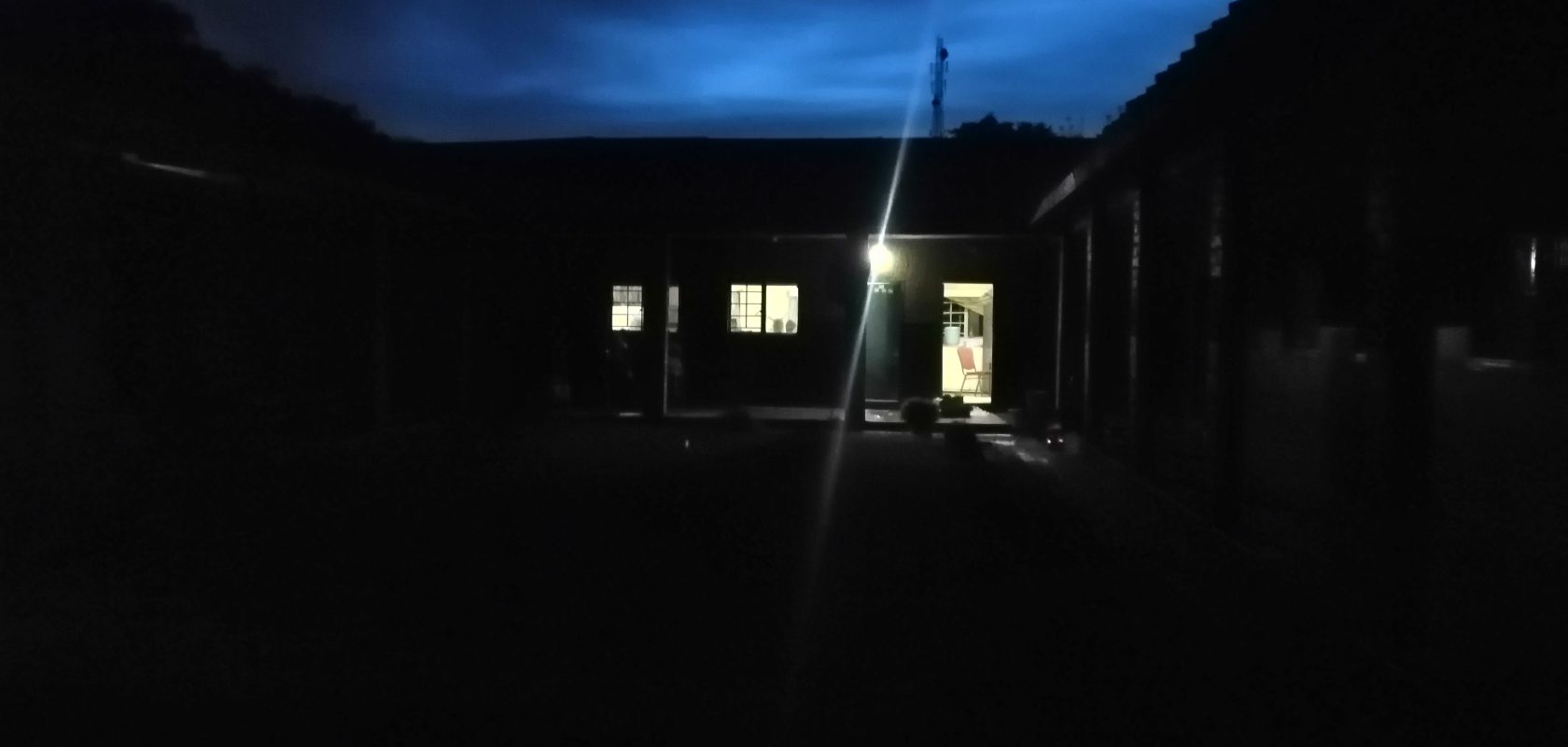About ten years ago, SunnyMoney Zambia partnered with the Churches Health Association (CHAZ) in Zambia to bring lighting solutions to rural health centres across the country. Sandie Simwinga, the Senior Programme Officer of CHAZ facilitated the installations of the lights in Kapatu and Mambwe in the Northern Province of Zambia. He tells us that a large crowd waited patiently for the first lights to be turned on, cheering and clapping with excitement as they flicked the switch for the first time. He remembers that as if on cue, a pregnant woman who was part of the crowd immediately went into labour. She became the first woman to have a baby born with adequate light at one of these rural health facilities in a very long time.
Ten years ago, rural clinics in Zambia were left without lighting, and the situation that health centres struggled with at that time is still ongoing today.
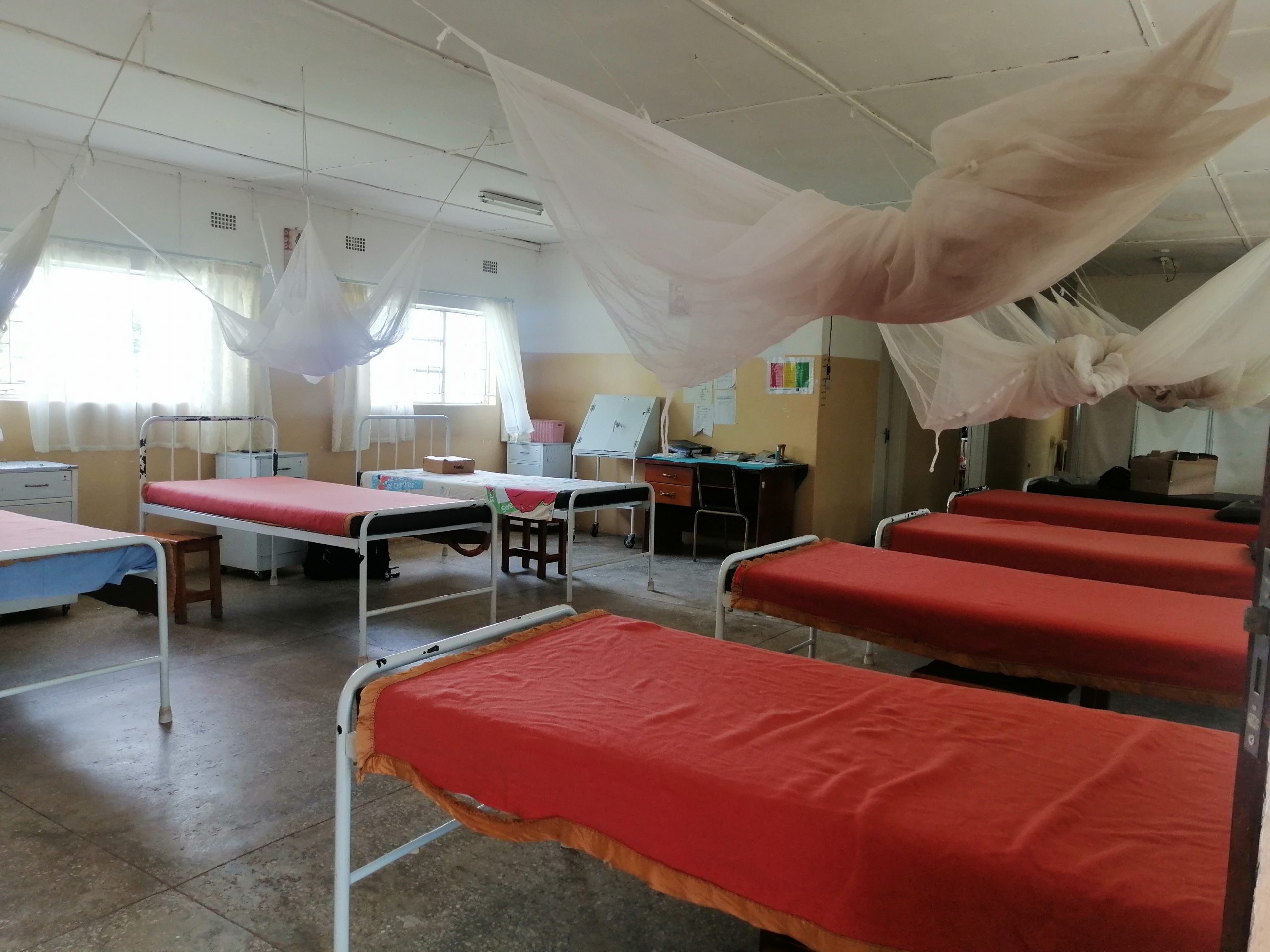
The maternity ward at St. Pauls Rural Health Centre. The majority of women in rural Zambia are forced to give birth without adequate lighting.
The sad reality is that only 4 percent of Zambia’s rural community have access to on grid electricity so a child being born in light feels like a victory for many health care workers. Babies are delivered in darkness, sutures are given in darkness, and patients are treated in darkness. In many case this is combined with the lack of access to all the appropriate equipment. Water is largely linked to electricity because pumps need the electricity to push water into the pipes. The inability to clearly see when carrying out lifesaving procedures can also have adverse effects.
SolarAid recently started a pilot project as part of the Frontier Technology Livestreaming Programme, which is funded by the Foreign Commonwealth and Development Office. We are working together on a Powering Healthcare grant which will provide innovative solutions to increase medical capacity within rural Zambian health centres. We aim to do this by installing multi light solar homes systems that have the capacity to recharge batteries which can be used for small scale medical equipment, such as a foetal doppler, pulse oximeter, bp cuff and an infrared thermometer. We believe that modern health care has to be able to provide the most basic of infrastructure for patients. Access to lighting is crucial, but more than that, hospitals rely on funding, and equipment undergoes wear and tear or gets lost- which is why we chose to provide the small scale medical equipment in the hope that it will increase efficiency and improve resources.
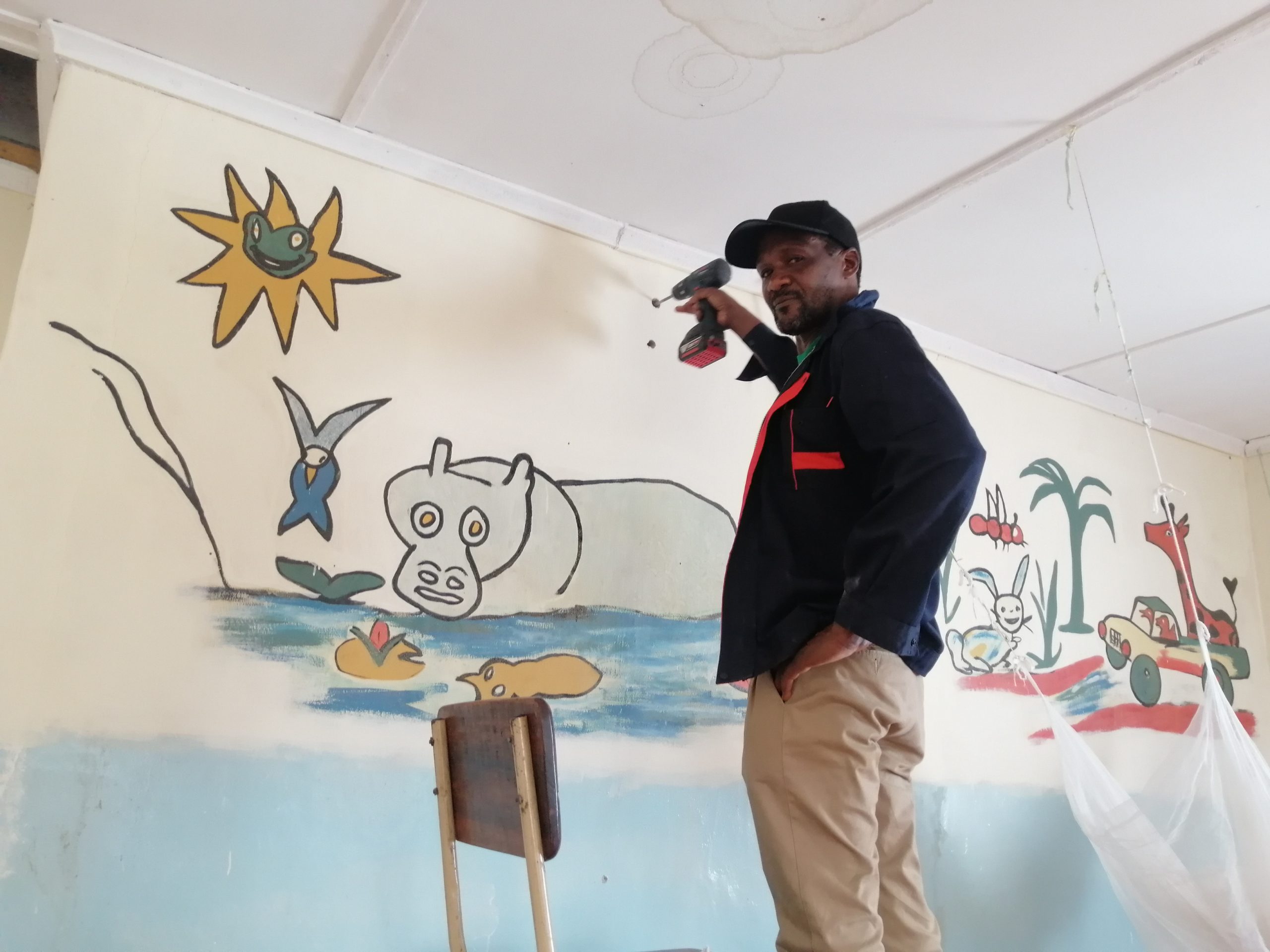
Sandie Simwinga, Senior Programme Officer, CHAZ Zambia.
This week, we set off to start the instalment of the solar systems at rural clinics. Our journey to Chipembi was a long one. We arrived after about 2 hours of driving in incessant rain through mud, deep puddles, untarred road and bush. Within about one minute of our arrival, our CHAZ companion, Sandie, was asked desperately by a nurse to help transport a woman in labour who was unable to walk to the hospital. Our vehicle was the only one for miles around. So Sandie sped off and brought the woman back just in time for the baby to be delivered. Shortly after, the electricity cut and the mother and her new born baby were left in the dark and waited patiently as our team drilled and hammered away to give the maternity ward lighting. This confirmed that this is a necessary job to be done.
The Head Nurse at Chipembi Rural Health Centre, Esther Sakala, said, “I am extremely grateful for the lighting provided as I have delivered many babies by torchlight and using the phone light.” This means having to remove human resources that are desperately needed at understaffed facilities to ensure the best delivery possible for mother and baby.
Esther Sakala was overjoyed when we managed to install a set of lights in her maternity ward. At this point there had been no power for hours and the only light was coming from cell phones and the burning coal that were being used to get warmth. Being able to witness the lights turning on one by one gave a sense of accomplishment, but there was also recognition that the surrounding areas were still left in the dark.
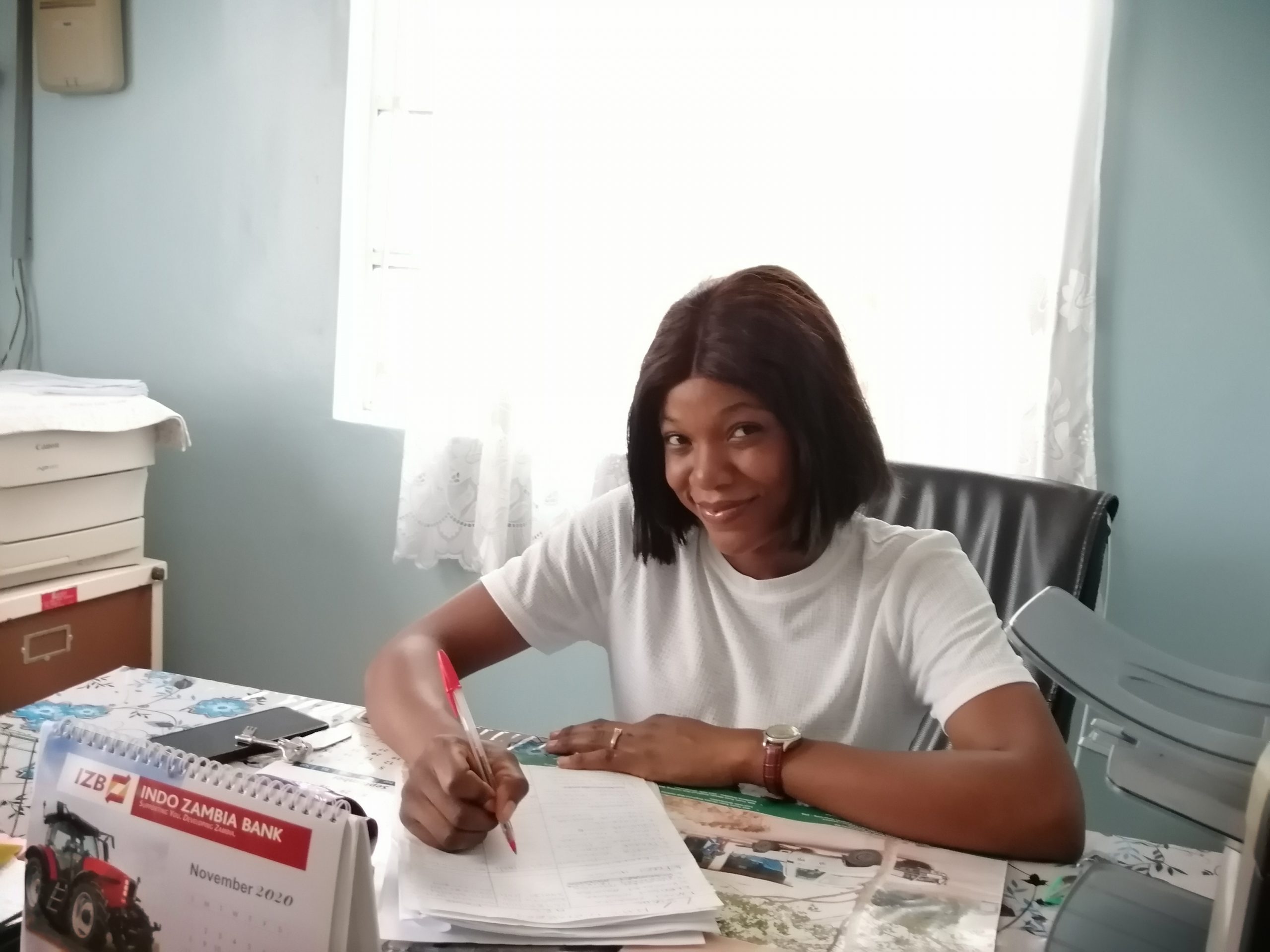
Kasongo Phiri, Nurse at St. Paul’s Rural Health Centre.
One of the nurses at the clinic, Kasongo Phiri from St. Paul’s Rural Health Centre stated “there is a large health risk with no electricity. When the power is cut that means we have no water. No water means we are not able to clean bed sheets or tools as needed or they cannot be used because they have not been cleaned. We also feel unsafe walking from our homes in complete darkness and it can be demotivating.” But she further said “We are so grateful for these lights. They will make a very big difference. I am very excited about the pulse oximeter, we don’t have one.”
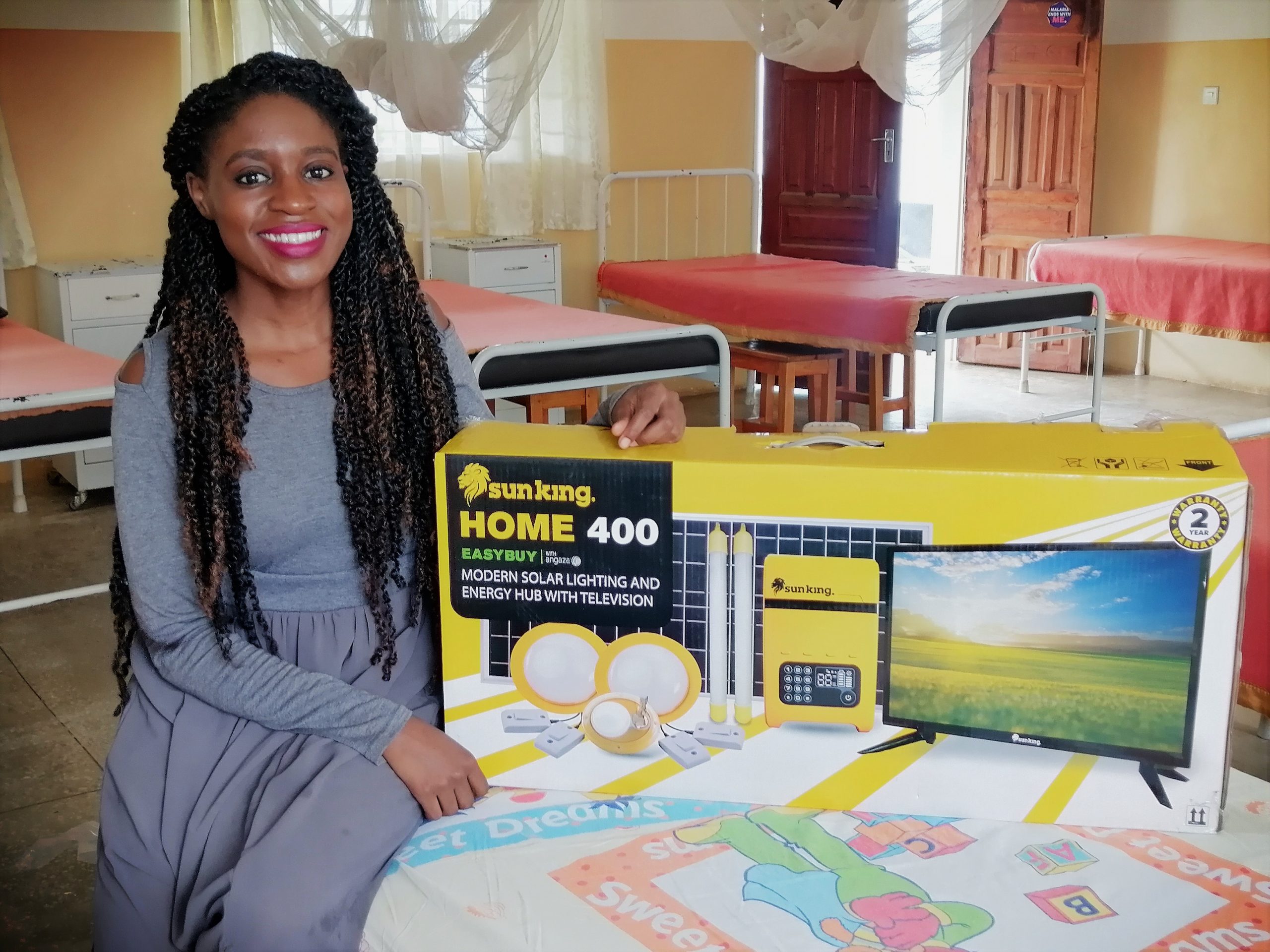
Kaluba Musakanya, SunnyMoney Zambia, handing over solar products.
Over the next few months, we will carry out solar installations in 10 health centres across Zambia. We hope that in time this simple solution will be seen for the added value that it gives these health centres and can be replicated in other areas across Zambia. No health clinic should be left in the dark.
